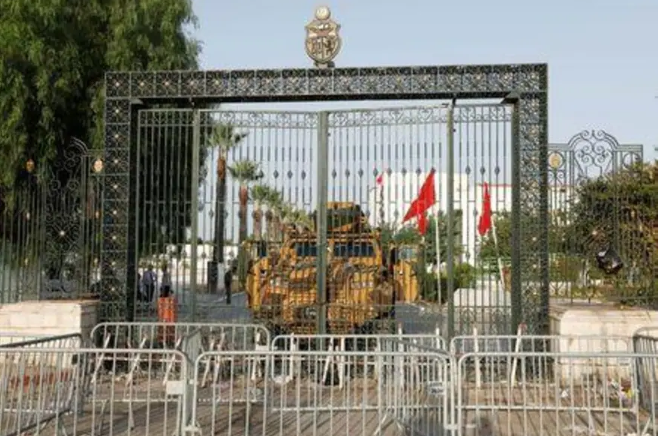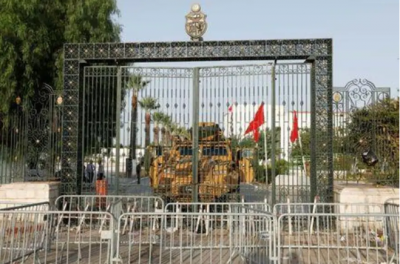The Ennahda Islamic Party, the largest party in Tunisia, called on Tuesday for a national dialogue to pull the country out of the crisis, following accusations against President Kais Saied of a coup after he dismissed the Prime Minister and suspended the parliament's activities. The party urged for dialogue and efforts to avoid internal conflict, contrary to its previous call for supporters to take to the streets to protest the president's decisions.
In a statement, the party said, "The movement... calls upon all Tunisians for more solidarity, support, unity, and to confront all calls for sedition and civil strife." The party requested its supporters through its branches to not continue their sit-ins in front of the parliament building and to refrain from organizing protests.
Two party officials stated on Tuesday that while some senior members wanted to maintain a presence in the streets, party leaders decided to refrain from further escalation and allow for a period of calm. The area in front of the parliament was deserted on Tuesday morning after clashes occurred on Monday between hundreds of Ennahda supporters and supporters of the president. Ennahda supporters left on Monday evening and did not return.
Tunisia is facing its biggest crisis since the popular uprising in 2011. Saied said that the action taken, with the help of the military, aligns with a constitutional provision that allows for exceptional measures during emergencies. This came after months of disputes with Prime Minister Hicham Mechichi and the parliament as the country slips towards an economic crisis exacerbated by the COVID-19 pandemic, heightening the risk of street confrontations or a loss of the democratic gains achieved a decade ago.
Rejection by Ennahda
The Ennahda party and the three largest parties following it in parliament rejected this action, labeling it as a "coup." A Tunisian political source indicated that Algeria urged Saied and his opponents to avoid any confrontations to prevent further destabilization or external intervention.
U.S. Secretary of State Antony Blinken contacted Saied late Monday, urging him to "commit to the principles of democracy and human rights." Saied has not yet announced a name for the interim Prime Minister but stated he will choose replacements for the Ministers of Defense and Justice. He did not specify whether the remaining ministers in the government would stay in their positions.
The president has also not laid out a roadmap for how he will manage the country's affairs during the thirty days in which he has suspended parliament activities. Although the parliament is still legally in session, it cannot hold meetings under the decree issued by Saied as soldiers surround the parliament, government headquarters, and the television station.
On Monday, the president tightened some COVID-19 measures by extending the nightly curfew by one hour and extending the ban on movement between cities for a month. He reaffirmed a decree prohibiting gatherings of more than three people in streets or squares, an action that has already been part of a state of emergency in place for years.




